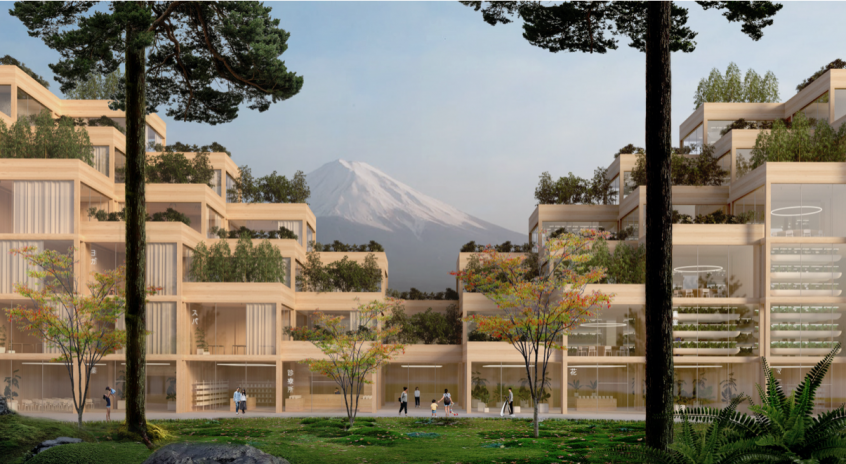Futuristic innovations and the latest cool gadgets are what people expect to see at the annual Consumer Electronics Show (CES) in Las Vegas. But Toyota Motor Company and Danish architecture firm, Bjarke Ingels Group, garnered media attention this week when they unveiled plans for a prototype town that would be built at the base of Mt. Fuji in Japan called Woven City.
The 175-acre city of the future will be built on land that once housed a shuttered Toyota automotive factory and is scheduled to break ground in 2021. Once completed, Woven City will have a population of about 2,000 people consisting of Toyota’s researchers, their families, retailers and retirees.
While high-tech elements like autonomous vehicles, smart home innovations and renewable energy are integral to the visionary city, the community is centered on sustainability and using environmentally friendly applications. The city will utilize solar energy, geothermal energy and hydrogen fuel cell technology to strive toward carbon neutrality, its designers tout. But an essential part of the carbon-neutral component is the significant use of wood – a renewable and sustainable product – sourced from nearby working forests.
Buildings will incorporate traditional Japanese wood joinery and be made mostly of carbon-sequestering wood to minimize the carbon footprint. Said Toyota Motor Corp. CEO Akio Toyoda at the CES on Monday: “The buildings at the Woven City will advance mass timber construction. By combining the legacy of Japanese craftsmanship and the tatami module with robotic fabrication technology, Japan’s construction heritage lives on, while building sustainably and efficiently into the future.”
Woven City joins other ambitious plans that rely heavily on the timber and innovative wood products that working forests produce. Last year, Sidewalks Labs unveiled its plan to develop 12 blocks within Toronto’s eastern waterfront area into a “climate-positive district” that also will be a hub of innovation. As more corporations, consumers and governments endeavor toward a net-zero carbon future and circular economy, demand for renewable timber is expected to continue.
Building primarily with wood also provides other advantages. Wood is aesthetically pleasing and promotes energy efficiency with timber’s higher insulation rating compared to steel and concrete. The benefits of building with wood and mass timber products also support Woven City’s mission to optimize nature to promote health, quality of life and create an “even better way of life” where people can live, work and play.
“I truly believe this is a project that can benefit everyone, not just Toyota,” Toyoda said to reporters.
